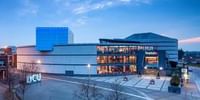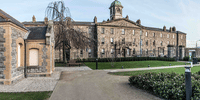The programme at??is underpinned by a conviction that any critique of contemporary culture must be rooted in an informed understanding of historical currents shaping the present.
The faculty in the Department of English at Maynooth is particularly well placed to reflect on our current cultural moment, having an established an international reputation for producing radical and politically-engaged cultural criticism. The programme will equip students to question the governing and normative structures of their society, critically confronting those discourses through which they are guided to think of themselves as entrepreneurial subjects rather than as human beings. It will help students to develop skills in creative critical thinking and argument, promote intellectual curiosity and excitement, and affirm the intrinsic and non-instrumental value of education as a social good.
Students will benefit from the instruction of committed and energetic scholars working at the forefront of their fields, with research specialisms which include Irish Studies, American, African and comparative literature, Renaissance Studies, and digital humanities. Their work addresses questions of: ecology; economy; diversity; gender, sexuality and race relations; borders; citizenship; terrorism; sovereignty; imperialism; migration and refugees. These questions are addressed using an intersectional model, drawing on key currents in literary and cultural theory: postcolonialism, feminism and gender studies, Marxism and ecocriticism. Through their choice of elective modules and a dissertation topic, students will have the opportunity to pursue their specific research interests.
The MA in Literatures of Engagement will develop its students? skills in critical analysis, argument, persuasion, and communication, and equip them with the ability and initiative to be engaged, responsible, and informed global citizens.? ??
Career Options
For some students this proposed programme will provide an essential bridge to doctoral studies in English Literature and cultural studies.
For the majority of students it will allow them to acquire valuable research, analytical and critical skills. These skills can then underpin their subsequent careers in various fields, such as: education; public administration; journalism/media; arts policy and administration; editing and publishing; law.
However, these types of analytical skills are essential for almost any modern workplace: assessing a mass of information and extracting the essential from the non-essential; assessing an argument; distinguishing facts from persuasive rhetoric; the necessity for clear and effective communication ? especially being able to write concisely, compellingly and elegantly.












